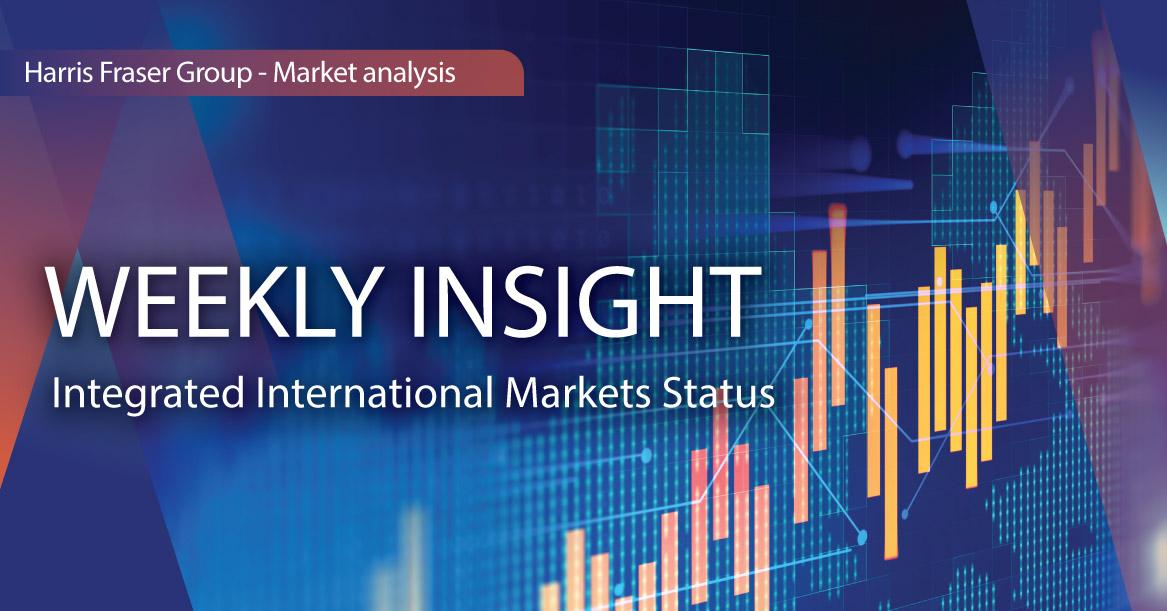
Weekly Insight 18/11
The recent rally has seemingly come to a temporary stop, as markets digest the latest economic data and Fed speak. Over the past 5 days ending Thursday, the 3 major indices were slightly down 0.25-0.50%. While markets have stayed optimistic recently, Fed officials continued to downplay the possibilities of a dovish turn. St. Louis Fed President James Bullard suggest that terminal rates should reach 5-5.25%, while Minneapolis Fed President Neel Kashkari agrees that more rate hikes are needed, both of them agreed that the monetary tightening had limited impact on inflation at the moment, and more would be needed. In response to the hawkish statements, the 2 Year Treasury Yield briefly hit 4.48% on Thursday, Bloomberg interest rate futures are also pricing in a 5% terminal rate in May 2023.
On the other hand, Midterm results have cleared earlier than expected. Democrats managed to hold the Senate as Nevada and Arizona candidates came out on top, while Republicans took control of the House as expected, although the margin was not as big as originally expected. For economic data, indicators point to signs of easing inflation, PPI readings fell across the board, the YoY of 8.0% was lower than both market expectations and the September figure. Economic fundamentals on the other hand were mixed, retail sales were strong with a 1.3% MoM gain in October, which surpassed expectations of 1.0% and the previous reading, while industrial production had a MoM contraction in October, missing market expectations. Next week, the US will be releasing a numerous economic data, including both manufacturing and services PMIs for November, durable goods orders for October, and the ongoing labour market data on jobless claims, the US Fed will also release the FOMC minutes for the November meeting.
In line with global markets, European equities also consolidated over the week, the UK FTSE was slightly down 0.39% over the past 5 days ending Thursday, while the French CAC and German DAX were 0.29% and 0.85% higher over the same period. The UK announced plans to raise taxes and cut spending so as to further restore financial market confidence, the scale of spending cuts and tax raises totalled over 55 billion pounds, which was the largest since 2010. As for the economy, Eurozone industrial production in September grew 0.9% MoM, better than expected. German ZEW current conditions and economic sentiment for November were -64.5 and -36.7 respectively, both better than expected and showed improvement from the previous month. UK CPI was 11.1% YoY in October, setting a new record high, and surpassing both the expected 10.7% and 10.1% in September. Next week, both the UK and the Eurozone will release the manufacturing and services PMIs for November, Europe will also release the latest consumer confidence, Germany will release the IFO business climate index for November, and OECD will publish the latest economic outlook.
China
Market sentiment remains optimistic, China equities continued the rally, the CSI 300 index gained 0.35% over the week, whereas Hong Kong equities rode on the positive rumors and continued the strong rebound, gaining 3.85% over the week. President Xi met US President Joe Biden in person at the G20 Summit in Indonesia, which was the first in person meeting between the leaders of both side since the start of the COVID pandemic. Sino-US tensions have seemingly eased from earlier meetings, US Secretary of State Antony Blinken will visit China early next year to facilitate further communication. Domestically, 16 new policies on the property sector were rolled out, including easing of pre-sale capital regulation. The news sent the whole property sector higher. As for economic data, China data remains disappointing, with fixed asset investment, industrial production, and retail sales all missing expectations and coming in lower than the previous figure. Next week, China will release the industrial profits data for October.






